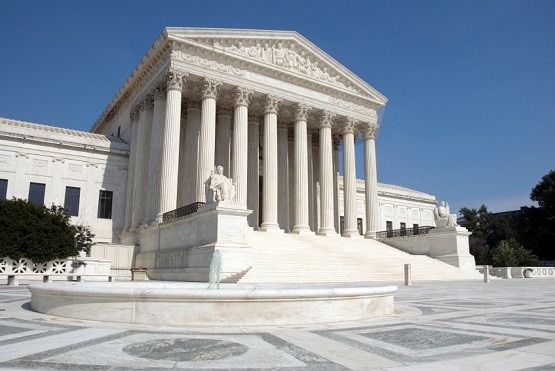Abortion businesses begged the U.S. Supreme Court for a second time Thursday to block the Texas heartbeat law and allow them to begin aborting unborn babies again.
Reuters reports Whole Woman’s Health and other pro-abortion groups argued that the pro-life law is causing “great harm” and there is an urgent need to block its enforcement.
On Sept. 1, the Supreme Court refused the abortion groups’ first request to temporarily block enforcement of the law and sent the case back to the lower courts for consideration. As a result, Texas became the first state in America to be allowed to enforce a heartbeat law.
Their second request is an unusual and desperate move. Basically, the abortion businesses asked the Supreme Court to “leapfrog” the case from the Fifth Circuit Court of Appeals before it has a chance to rule and immediately issue a ruling about whether their lawsuit may move forward, according to SCOTUS Blog.
Follow LifeNews on the Parler social media network for the latest pro-life news!
“Every day, the abortion industry loses money, loses business and loses their legal attacks against the Texas Heartbeat Act,” said Texas Right to Life Vice President Elizabeth Graham. “[Thursday’s] filing with the Supreme Court proves they are running out of options. The abortion industry is asking the court to forgo regular judicial procedures and step outside their constitutional authority to cater to the abortionists and stop this life-saving law.”
The pro-life law prohibits abortions once an unborn baby’s heartbeat is detectable, about six weeks of pregnancy. Texas Right to Life estimates at least 2,300 babies have been saved from abortion since the law went into effect.
Reuters reports more:
In their petition to the Supreme Court, the abortion providers including Whole Woman’s Health and other advocacy groups said that the justices should decide if the state can “insulate” its law from federal court review by delegating its enforcement to the general public.
The Supreme Court rarely agrees to hear a case before lower courts have had a chance to weigh in with their own rulings.
The Texas law has a unique private enforcement mechanism that allows people to file lawsuits against abortionists who violate the law and those who help them.
Texas abortion businesses say this provision is stopping them from aborting unborn babies due to the threat of “ruinous liability,” according to their petition to the Supreme Court.
In their request, they also expressed worries that other states will copy the Texas law and the abortion ban will spread, according to the report.
The Whole Woman’s Health case is one of several lawsuits filed against the new law. Another is from the Biden administration. The court battle is far from over and no court has ruled yet on the constitutionality of the law. However, it is unusual for courts to allow a near-total abortion ban to go into effect, even temporarily.
Pro-life advocates are hopeful, and they know the law is saving lives. Even pro-abortion groups admit that while some abortion-minded women are traveling out of state for abortions, others are choosing life for their babies as a result of the law.
Meanwhile, pro-life advocates are reaching out to pregnant women across Texas with compassion and understanding, offering resources and emotional support to help them and their babies. Earlier this year, state lawmakers increased support for pregnant and parenting mothers and babies, ensuring that they have resources to choose life for their babies.
About a dozen states have passed heartbeat laws to protect unborn babies from abortion, but Texas is the first to be allowed to enforce its law. Whether the law will remain in effect or ultimately be upheld as constitutional in court remains uncertain, but pro-life leaders are hopeful now that the Supreme Court has a conservative majority.
A hearing on one of the lawsuits is scheduled for Oct. 1 before a federal judge.








